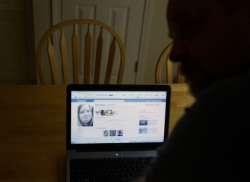One in three young people victims of cyber-bullying: UNICEF
One in every three young people has reportedly being a victim of cyberbullying, according to a survey conducted by the UN Children's Fund in 30 countries. More than 170,000 people between the ages of 13 and 24 participated anonymously in the UNICEF poll, which showed that one in five young people had skipped classes due to internet bullying and violence.

More than 170,000 people between the ages of 13 and 24 participated anonymously in the UNICEF poll, which showed that one in five young people had skipped classes due to internet bullying and violence.
Unicef released the report on Wednesday, the Efe news reported. According to a majority of respondents, social networks including Facebook, Instagram, Snapchat and Twitter are the most commonplace sites on which cyberbullying occurs.
"All over the world, young people -- in both high and low-income countries -- are telling us that they are being bullied online, that it is affecting their education, and that they want it to stop," Unicef Executive Director Henrietta Fore said in a statement.
According to the survey, some 32 per cent of respondents believed that governments should be responsible for ending cyber bullying, while 31 per cent said it should be done by the youths themselves and 29 per cent pegged the responsibility to end the scourge on internet companies.
Unicef stressed that cyberbullying is already a global phenomenon that is not limited just to developed countries. Thus, 34 per cent of respondents in sub-Saharan Africa said they had been a victim of this type of abuse.
The survey's findings challenge the widespread notion that cyberbullying among classmates was an exceptional problem mainly affecting high-income students.
Some 39 per cent said they knew of private online groups within the school community where children shared information about peers for the purpose of bullying.
The survey was carried out using a digital platform and involved young people from very different countries and regions such as Bangladesh, France, Bolivia, Brazil, Ghana, Iraq, Mali, Romania, Ukraine and Vietnam. "Connected classrooms mean school no longer ends once a student leaves class, and, unfortunately, neither does schoolyard bullying," Fore said.
In response, Unicef is calling for the implementation of policies to protect students, national helplines to support those affected, social networks to improve ethical standards and training for teachers and parents to prevent and adequately respond to cyberbullying.